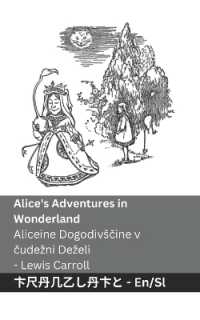- ホーム
- > 洋書
- > ドイツ書
- > Social Sciences, Jurisprudence & Economy
- > Social Sciences
- > social sciences in general
Full Description
This book collates and examines current law and policies on the right to genetic ancestry, arguing that the right to identity often rests upon the ability to identify biological ancestors.








